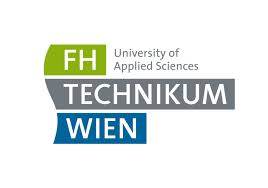Welcome to the Workshop on Human Factors in Intelligent Vehicles in its 6th edition.

This workshop is promoted by IEEE ITS Society’s on Human Factors in Intelligent Transportation Systems, TC on Human Factors in ITS Technical Activities Sub-Committee.
The workshop will take place at "Mielparque Yokohama" in Yokohama-city, Kanagawa, Japan on Monday October, 16 2017.
It is the 6th edition to be co-placed with the IEEE 20th International Conference on Intelligent Transportation Systems, to be held in Yokohama, Japan October 16 - 19, 2017.
Aim and Scope
The IEEE Workshop on Human Factors in Intelligent Vehicles (HFIV’17) allocated with the IEEE 20th International Conference on Intelligent Transportation Systems, to be held in Yokohama, Japan, October 16-19, 2017, is the 6th edition of its series.
The HFIV’17 welcomes and encourages contributions reporting on original research, work under development and experiments of different fields related to Human Factors.
The IEEE Workshop series on Human Factors in Intelligent Vehicles aims to foster discussion on issues related to the analysis of human factors in the design and evaluation of intelligent vehicles technologies, in a wide spectrum of applications and in different dimensions. It is expected to build upon a proper environment to disseminate knowledge and motivate interactions among the technical and scientific communities, practitioners and students, allowing state-of-the-art concepts and advances to be further developed and enhanced.
IV technologies have experienced a great improvement in the last couple of decades, turning vehicles into more interactive counterparts in transportation and mobility systems. However, analyzing the impact of such technologies on traffic awareness for the drivers and their behavior towards improving driving performance while reducing road accidents as well as psycho and physical exhaustion still demands proper tools and approaches.
Whereas the feasibility of incorporating new technology-driven functionalities to vehicles has played a central role in the automotive design, not always safety issues related to interaction with the new in-vehicle systems have been taken into consideration. Additionally, other aspects are equally important and need to be accounted for, such as the impact technologies that support specific driving functions play on the primary task of driving the vehicle, as well as their impact on overall performance of transportation systems. Besides current industrial achievements that feature today’s vehicles with a number of important driving assistance systems, the perspective of autonomous driving vehicles populating urban settings pose even more challenging issues.
Also, the information and functionalities that rely on new ways of communication have to be presented in a non-intrusive way while complying with specific design requirements. A system that guarantees efficiency of use, comfort and user satisfaction is inarguably an important contribution towards a more conscious driving behavior that directly results from the adoption of IV technologies.
Topics of Interest
Some topics of interest include (but are not limited to) the following:
- Intelligent user interfaces
- Human-machine interaction
- Human-in-the-loop simulation
- Cognitive aspects of driving
- Interaction with Autonomous Vehicles
- Human behavior and capability, affecting system’design and operation
- Data sources, naturalistic data and synthetic data
- Behavior Modeling, Simulation and Analysis
- Methodologies to optimize overall system performance
- Tools and approaches to analyze human factors
- Ergonomics of traveler information systems
- Anthropometric layout of vehicular technical systems
- Mixed Reality
- Cross-Cultural Design
- Augmented Cognition
- User Experience and Usability
- User Interfaces for Autonomous Vehicles
- Computer Aided Ergonomics Analysis
- Effects of in-vehicle systems on driver performance
- Tools and methodologies for usability assessment
- Input/Output modalities in system ergonomic design
- Learning, Anticipation, and Adaptation balance
- Methodologies for driver training
Paper Submission and Publication
Prospective authors are invited to submit contributions reporting on their current research and ideas that motivate discussion during the workshop. Each paper will be analyzed by an International Program Committee according to quality of presentation, relevance and potential contribution.
Accepted papers will be included in the conference proceedings as workshop papers and will be indexed in the IEEE Xplore Digital Library. Authors must follow the IEEE Conference format in the preparation of their manuscripts of maximum 6 pages in standard IEEE double column PDF format and submit them through the conference submission system for peer-review by the International Program Committee. All accepted papers will imply that at least one of the co-authors attends the workshop to present the work. Authors will be given a certain time to orally present their papers and discussion will be actively motivated among attendees.
Detailed submission instructions can be found on the Workshop Web site at HFIV’17, under the Submissions option.
Important Dates
Manuscript submission
HFIV’17 Workshop
IEEE ITSC’17
Oganizing Committee
University of Applied Sciences Technikum Wien, Vienna, Austria
University Carlos III, Madrid, Spain
Manuscript preparation
The 6th HFIV Workshop welcomes contributions within the scope and topics of the forum. While preparing your manuscript, please do follow the same formatting guidelines specified by IEEE IV’16 main conference standard IEEE double column PDF of maximum 6 pages. Further, due to space constraints on the proceedings of the conference, all papers are limited to 2 MB and should preferably be less than 500 kB.
For the final version of the papers, please use Word or Latex templates and submit the pdf file through the EDAS tool.
Further details on formatting, frequently asked questions and templates are available on the Conference Web Site.
Manuscript submission
Contributions must be electronically submitted in PDF files only, via the conference submission system for peer-review by the International Program Committee.
Please, to upload your paper follow the procedure below:
1. Log into the EDAS tool.
2. Select the [WS02] Human Factors in Intelligent Vehicles
Reviewing process
Each manuscript submitted to HFIV’17 will undergo a peer-reviewing process by at least three members of the International Programme Committee to ensure accepted papers will be of great interest and motivate an open and broad discussion among the audience. Contributions will be reviewed according to relevance to HFIV’17, originality and novel ideas, technical soundness and quality of presentation. Given the nature and aims of the forum, undergoing projects bringing into discussion state-of-the-art and cutting-edge ideas and novel trends are highly encouraged.
Authors of accepted papers must follow and carefully consider reviewers’ comments, guidelines, and suggestions during the preparation of their camera-ready version for inclusion in the workshop proceedings in a digital format.
Publication
Accepted papers will be included in the conference proceedings as workshop papers and will be indexed in the IEEE Xplore Digital Library.
All accepted papers will imply that at least one of the co-authors attends the workshop to present the work.
Authors will be given a certain time to orally present their papers and discussion will be actively motivated among attendees.
Camera-ready manuscripts must be submitted by Aug, 31, 2017.
Conference Program
The workshop will take place on Monday October 16, 2017 at Yokohama, Japan.
You can access the IEEE ITSC'17 conference program through the Conference Web Site.
HFIV’17 Workshop Final Program
| 9am-9:20am | "Hypovigilance in Limited Self-Driving Automation: Peripheral Visual Stimulus for a Balanced Level of Automation and Cognitive Workload "; Jusuf Çapalar and Cristina Olaverri-Monreal |
| 9:20am-9:40am | "Adaptive Behaviour Selection for Autonomous Vehicle Through Naturalistic Speed Planning" ; Maradona Rodrigues, Andrew McGordon, Graham Gest, and James Marco |
| 9:40am-10am | "Cost-Efficient Brainwave Controller for Automated Vehicles Route Decisions”; Armando Astudillo, Francisco Miguel Moreno, Ahmed Hussein and Fernando Garcia |
| 10am-10:20am | "Driver's Decision Analysis in Terms of Pedestrian Attributes -A Case Study in Passing a Pedestrian”; Fumito Shinmura, Yasutomo Kawanishiy, Daisuke Deguchiz, Ichiro Idey, Hiroshi Murasey and Hironobu Fujiyoshi |
| 10:20am-10:40am | Coffee break | 10:40am-11:00am | “Effect on Driving Performance of Two Visualization Paradigms for Rear-End Collision Avoidance”; Cristina Olaverri-Monreal, Marko Gvozdic and Bharathiraja Muthurajan |
| 11am-11:20am | “Individualized Driver Action Anticipation Using Deep (Bidirectional) Recurrent Neural Network”; Oluwatobi O Olabiyi, Eric Martison, Vijay Chintalapudi and Rui Guo |
| 11:20am-11:40am | “Evaluation of Passenger Characteristics on Comfort Ride in Autonomous Wheelchairs”; Taishi Sawabe, Tomoya Okajima, Masayuki Kanbara and Norihiro Hagita |
| 11:40am-12:00pm | “An Intelligent Vehicle's Collision Mitigation Strategy to Compensate for Human Driver's Weakness”; Raj Haresh Patel, Jérôme Härri and Christian Bonnet |
| 12:00pm-2:00pm | Lunch |
Inquiries and further information
Please send your requests by e-mail to the workshop organizers.
Contact details
If necessary, the Organizing Committee’s contact details are:

UAS Technikum Wien, Vienna, Austria
Höchstädtplatz 6, Room A5.33
1200 Vienna, Austria
Phone: +43 1 333 40 77-235
Email: olaverri @ technikum - wien . at (no spaces)




